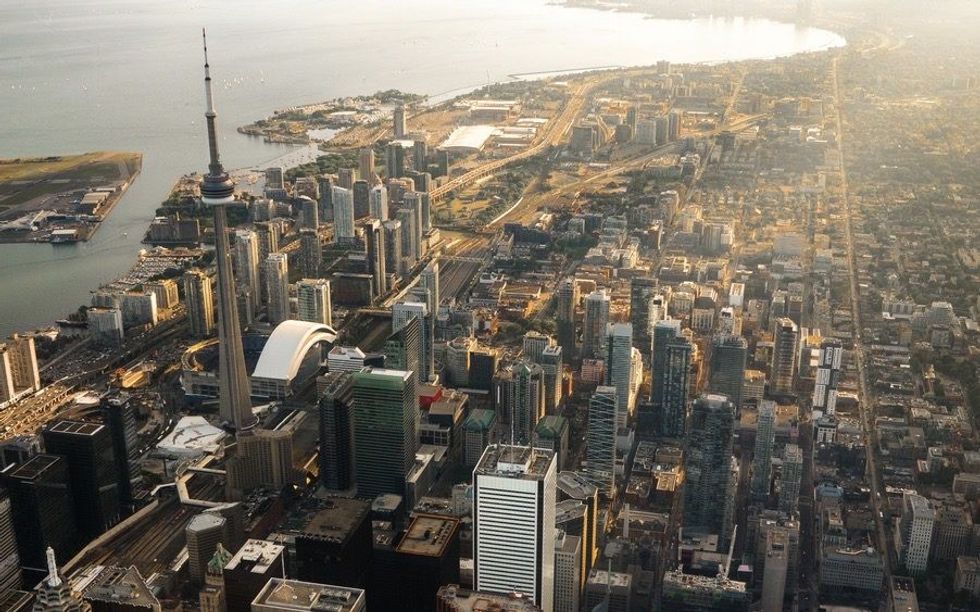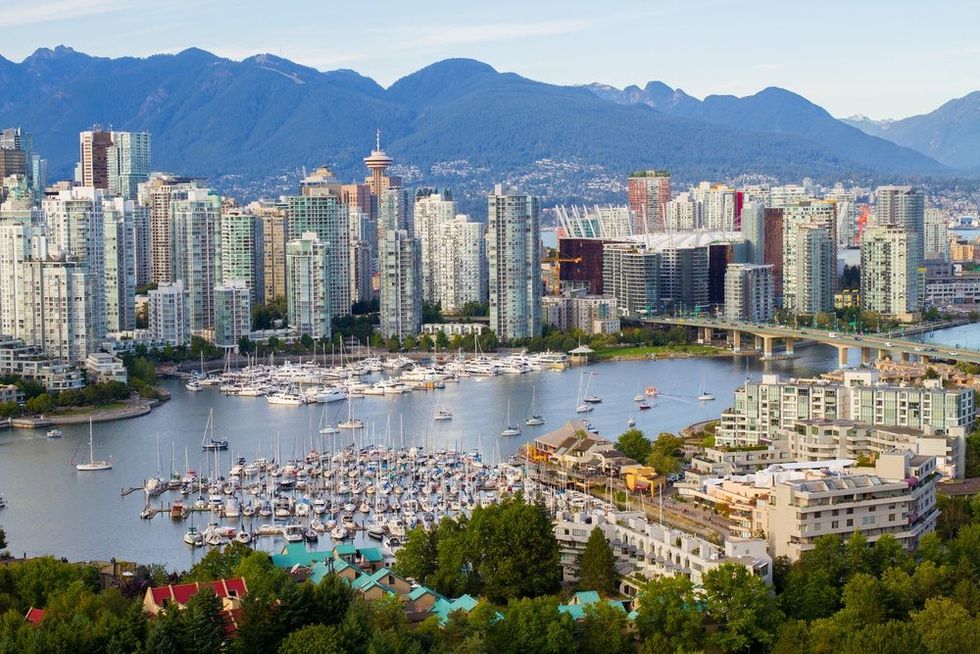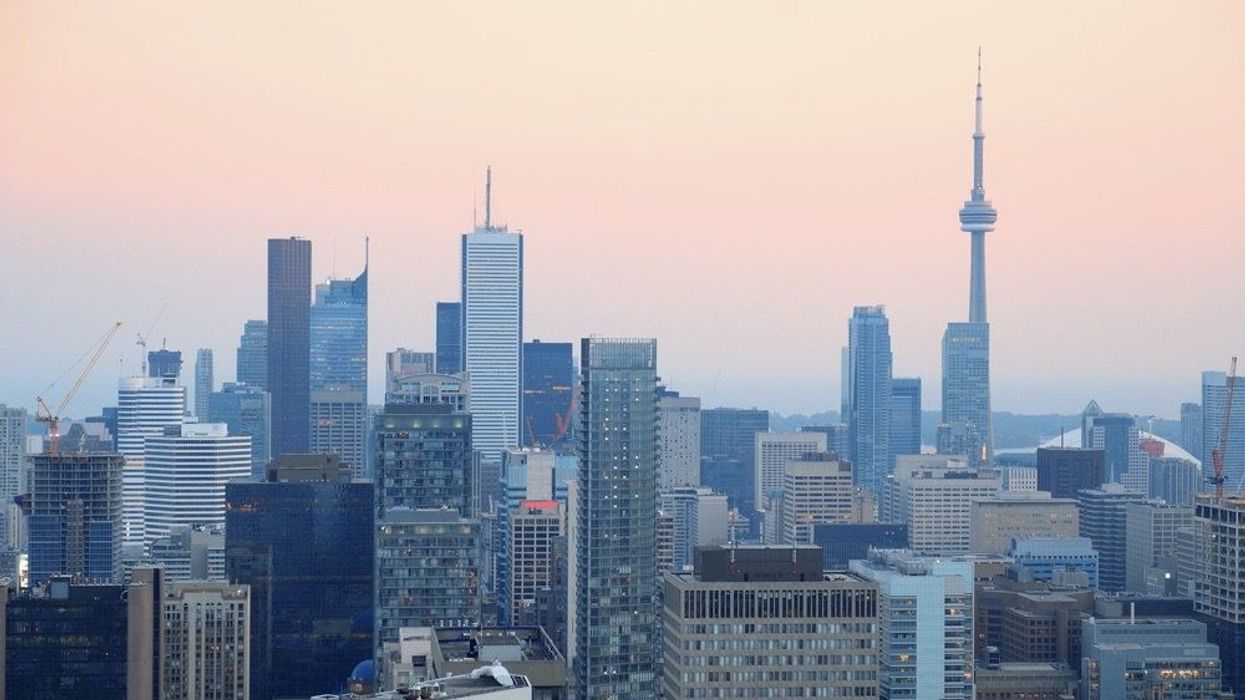There was a time when the significant gap between Vancouver and Toronto home prices made the latter a more attractive city to call home -- despite the lure of BC's postcard-worthy mountains.
Now, however, Toronto is quickly catching up to the notoriously unaffordable Vancouver, as the price gap between the two cities dramatically narrows -- at least, according to some stats.
Last week, Ben Rabidoux, founder of Edge Realty Analytics Ltd, took to Twitter to highlight the dwindling price gap between Toronto and Vancouver.
“Benchmark house prices in Vancouver were $300,000 higher than in Toronto back in 2018. Today that spread is less than $20,000,” he tweeted.
It should be noted that the benchmark property in Toronto is a three-bedroom property, whereas the benchmark property in Vancouver is a two-bedroom. This makes drawing comparisons tricky, says Jason Mercer, chief market analyst at the Toronto Regional Real Estate Board (TRREB). “It’s important to recognize difference in the composition of the benchmark,” he says.
Nonetheless, the reality remains that Toronto’s home prices are quickly catching up to those in Vancouver, soaring to sky-high, increasingly unattainable heights. And they’re only increasing (not that any would-be first-time homebuyers need the reminder).
According to TRREB, Toronto real estate had its biggest year on record in 2021. A total of 121,712 sales were reported through its MLS® System in 2021 -- up a drastic 28% from 2020’s already red-hot market, and 7.7% over the previous record high set in 2016.

“In Toronto, the soaring prices come down to the fact that there’s very little inventory on the market. At the end of December, we only had 3200 active listings available, which is a record low,” says Mercer. “But we are also seeing record levels of demand and transactions in 2021, so there is intense competition between buyers in a lot of neighbourhoods throughout Toronto and in the surrounding Greater Toronto Area. These are key factors in the acceleration of price growth.”
Without any relief on the supply front, Mercer says there is distinct possibility that we will continue to see increasing price growth throughout the GTA.
READ: The $2 Million Dollar Home? Average Prices in Vancouver Set to Jump in 2022
Toronto’s incredibly tight market led home prices to climb to new heights as of late, jumping a further 17.8% over 2020’s record ($929,636) to reach an average sale price of $1,095,475 in 2021. To close out the year, the average selling price was up by 24.2% annually to $1,157,849 in December. This follows a dramatic November, when Toronto home prices surged to an all-time high of $1,163,323.
That’s not to say Vancouver’s home prices have been stagnant or slow-moving -- far from it, especially once the pandemic made the picture-perfect west coast city an attractive new home to an influx of new remote workers. Like Toronto, Vancouver also smashed sales records in 2021.

According to the Real Estate Board of Greater Vancouver (REBGV), the 43,999 homes sold in Greater Vancouver 2021 marked an increase of 42.2% compared to 2020 and of 73.6% from 2019. The 2021 home sales also broke 2015's all-time sales record of 42,326. By the end of 2021, the benchmark price for all home sales in Metro Vancouver was $1,230,200, which is a 17.3% increase from December 2020.
Vancouver realtor and housing analyst Steve Saretsky says we can expect Vancouver's market to continue to push higher due to current supply constraints.
"Vancouver's housing market is showing signs of excessive exuberance in the entry level detached segment," says Saretsky. "Prices have inflated at a tremendous [rate] for houses in the suburbs. We are still seeing some softness for condos in the downtown core. Very similar to 2016/17, I suspect there will be more of a lift in the condo space as it plays catch up and people get priced out of the detached segment. The one thing that we will have to watch for is the pace of interest rate hikes from the Bank of Canada which could spoil the party prematurely, so to speak."
READ: New CEO of Real Estate Board of Greater Vancouver Sees Seismic Shift Coming
Perhaps it was only a matter of time before Vancouver’s sky-high market reached other major metropolises. As Toronto prices catch up, notable similarities between the Vancouver and Toronto real estate markets are glaringly apparent. Both are characterized by a relentless lack of supply -- a major factor in the price tags of homes. Speculation and investor dollars are also blamed for jacking up prices. Furthermore, money laundering has made its way to the real estate market in both cities.
But why have Toronto’s home prices increased so much more than Vancouver’s to account for the narrowing price gap?
"Toronto seems to be grappling with larger inflows and the supply has not been able to expand quick enough," says Saretsky. "You can see this in the months of inventory data. Months of inventory in the GTA is less than 1. In Vancouver, we are near 2."
The Canadian Real Estate Association (CREA) advises that a more direct housing type comparison may paint a different picture when it comes to drawing comparisons between Toronto and Vancouver.
"The housing stocks of the two cities differ considerable, particularly in terms of the weight allocated to condos vs. ground level which is the likely reason for the difference in the number of bedrooms in the composite type," says a spokesperson from CREA. "Adding to that is the relative price performance of these housing types during the pandemic."
So, while the above analysis does not directly compare housing types in the two cities (i.e. two-storey vs two-storey), the overall fact that benchmark pricing between the two continues to get closer remains relevant -- just ask anyone who's looking to buy in either city.
Moving forward, in both Toronto and Vancouver, supply issues will only face more pressure with the return of widespread immigration and an influx of new residents.
“We saw an increase in immigration in 2021 to the point when the third quarter of the year that we hadn’t seen since pre-COVID,” said Mercer. “That’s expected to continue because the federal government has said we were going to see immigration levels at record levels as we recover from the pandemic. It’s part of the recovery strategy to have businesses and people moving to Canada. But they need places to live; we need supply to accommodate the population growth or prices will only climb.”
As Mercer highlights, both Toronto and Vancouver remain among the most attractive cities for new people. "Both the GTA and Vancouver are known globally as a great places to live and great places to do business and as long as that remains the case, people are going to need a place to live in both cities," he says.
He points to recent influx of new residents.
“We also saw an increase in immigration in 2021 to the point when the third quarter of the year that we hadn’t seen since pre-COVID,” said Mercer. “That’s expected to continue because the federal government has said we were going to see immigration levels at record levels as we recover from the pandemic. It’s part of the recovery strategy to have businesses and people moving to Canada. But they need places to live; we need supply to accommodate the population growth or prices will only climb.”
While Toronto prices may be catching up to Vancouver’s, they likely won’t surpass them anytime soon in overall cost for the simple reason that Vancouver's prices are currently predicted to continue their rise right alongside Toronto.





















